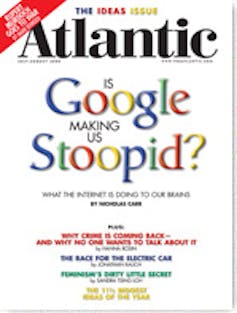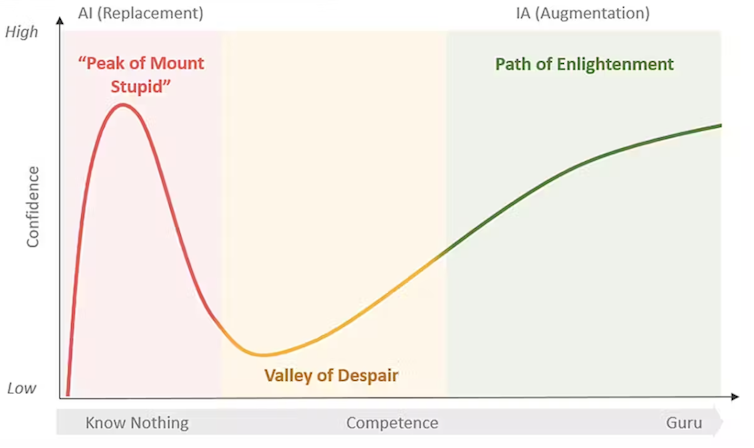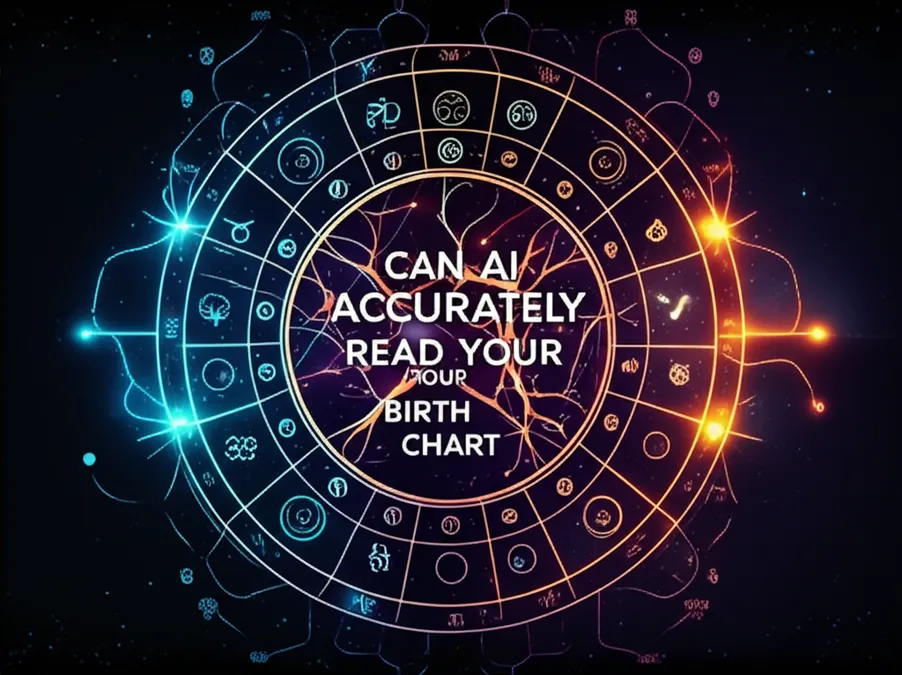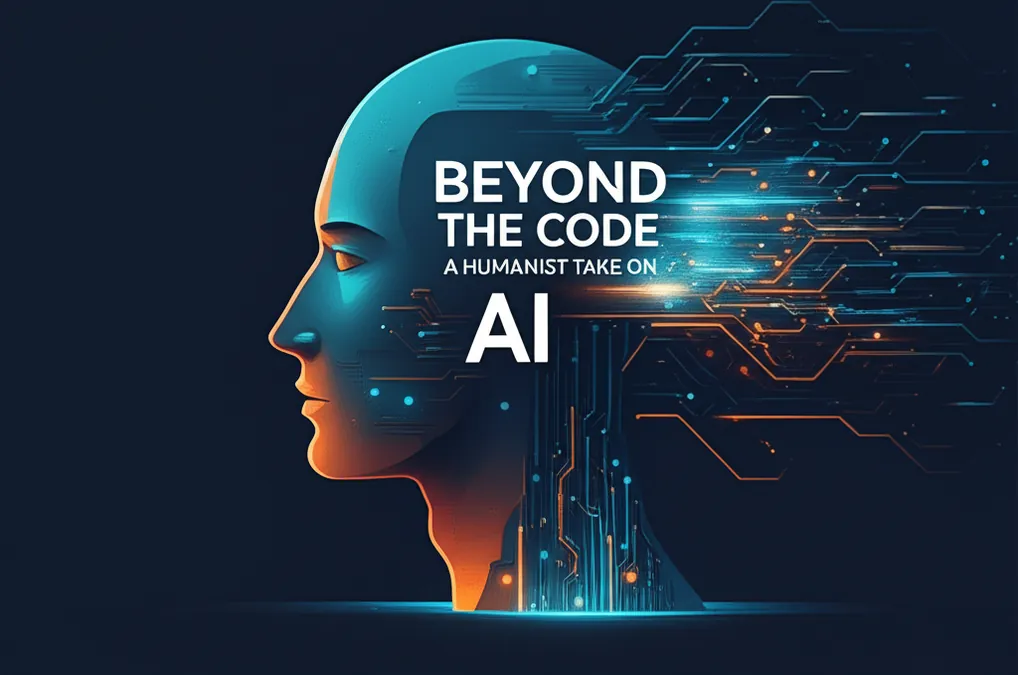Offre pour développeurs
Essayez l'API ImaginePro avec 50 crédits gratuits
Créez des visuels propulsés par l'IA avec Midjourney, Flux et plus encore — les crédits gratuits se renouvellent chaque mois.
How AI Shapes Our Intelligence The Choice Is Ours
More than a decade ago, in 2008, a provocative cover story in The Atlantic asked, Is Google Making Us Stupid?. The author, Nicholas Carr, who later expanded his essay into a book, argued that technologies like search engines were eroding our capacity for deep thought and knowledge retention. Carr's central concern was that the ability to instantly look up facts online meant we no longer needed to remember them. While there may be some truth to this, using search engines effectively still demands critical thinking to properly interpret and contextualize the results.
 The July/August 2008 issue of The Atlantic that sparked the debate. Source: Wikimedia Foundation
The July/August 2008 issue of The Atlantic that sparked the debate. Source: Wikimedia Foundation
Today, we face an even more profound technological shift. With generative AI tools like ChatGPT, we're not just outsourcing memory—we may be outsourcing thinking itself. These tools don't just find information; they create, analyze, and summarize it. This represents a monumental change, as generative AI is arguably the first technology with the potential to replace core human thinking and creativity. This brings us back to the critical question, but with a new subject: Is ChatGPT making us stupid?
As a professor of information systems with over two decades of experience in AI, I see it as essential to consider what we gain and what we risk as we delegate more cognitive tasks to machines.
The Dunning-Kruger Effect in the Age of AI
Generative AI is fundamentally altering how we process information. Instead of sifting through sources and wrestling with ambiguity, we can get polished answers in seconds. While these results may not always be accurate, the efficiency is undeniable and is already changing how we work.
However, this convenience carries a significant cost. Relying on AI to do our thinking can weaken our ability to think critically and solve complex problems. Passively consuming AI-generated content can stifle intellectual curiosity and create a dependency that hinders long-term cognitive growth.
To understand this risk, consider the Dunning-Kruger effect: a cognitive bias where people with low ability at a task overestimate their ability. They don't know what they don't know. When applied to AI, some users might replace their cognitive effort with AI-generated content and mistakenly believe they understand a topic deeply. In this scenario, AI can create a false sense of intelligence while diminishing the actual mental work.
This leads to a clear divide. Some users will remain on the "peak of Mount Stupid," using AI as a substitute for thought. Others will use it to augment their existing skills, moving toward true expertise.
 This image illustrates the journey from overconfidence in AI as a substitute for thinking (the Peak of Mount Stupid) through disillusionment and toward true value creation. From 'Artificial Intelligence to Augmented Intelligence: A Shift in Perspective, Application, and Conceptualization of AI' (2024) by Aaron French and J.P. Shim.
This image illustrates the journey from overconfidence in AI as a substitute for thinking (the Peak of Mount Stupid) through disillusionment and toward true value creation. From 'Artificial Intelligence to Augmented Intelligence: A Shift in Perspective, Application, and Conceptualization of AI' (2024) by Aaron French and J.P. Shim.
Ultimately, it's not whether you use AI, but how you use it. If used uncritically, it fosters complacency. But when used as an aid, it becomes a powerful tool for curiosity and dialogue. The key is to use generative AI to augment human intelligence, not replace it. Treat AI responses as the starting point for thought, not the final word.
Augmentation vs. Replacement: The Future of Work with AI
The rapid adoption of generative AI, with ChatGPT reaching 100 million users in just two months, has brought us to a crossroads. One path leads to a world where we let AI think for us. The other offers a chance to expand our own brainpower by working alongside AI.
There's a popular saying: "AI won't take your job, but someone using AI will." I believe we can take this a step further. Those who use AI to merely replace their own thinking will remain on the peak of Mount Stupid and will, in fact, be the easiest to replace.
It is the individuals who adopt an augmented approach—collaborating with AI to achieve results neither could produce alone—who will find the path to enlightenment. This partnership is the future of work.
So, while we started by asking if ChatGPT will make us stupid, the more important question is: How will we use it to make ourselves smarter? The answer to both lies not with the technology, but with us, the users.
Comparer les plans et tarifs
Trouvez la formule adaptée à votre charge de travail et débloquez l'accès complet à ImaginePro.
| Plan | Tarif | Points clés |
|---|---|---|
| Standard | $8 / mois |
|
| Premium | $20 / mois |
|
Besoin de conditions personnalisées ? Parlons-en pour ajuster crédits, limites ou déploiements.
Voir tous les détails tarifaires

